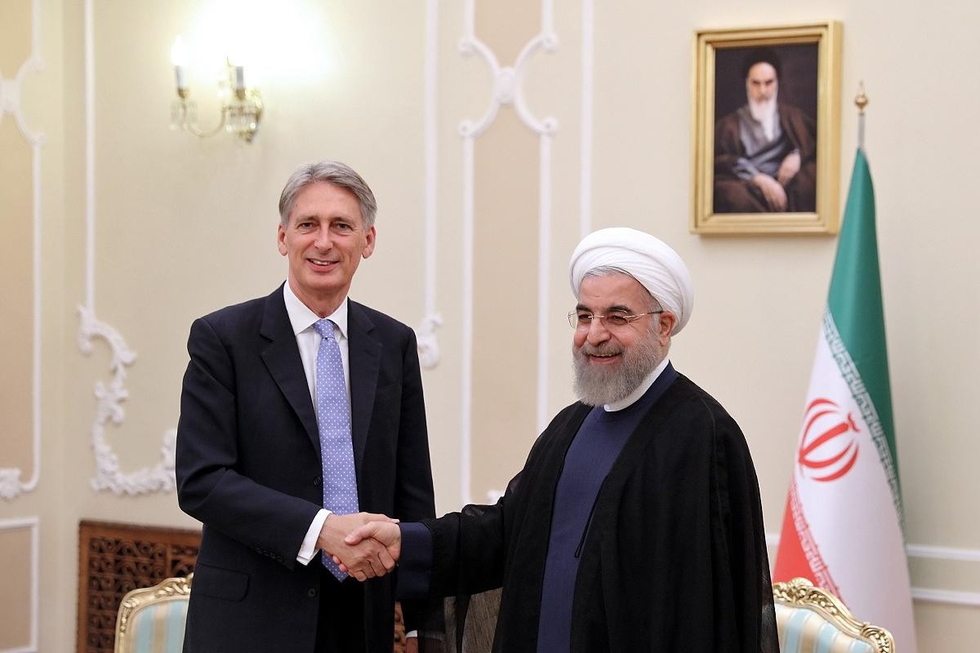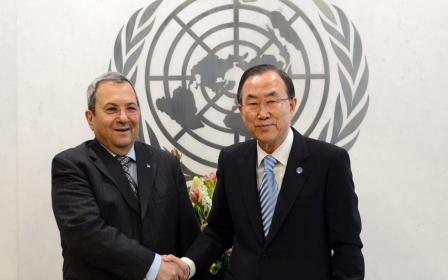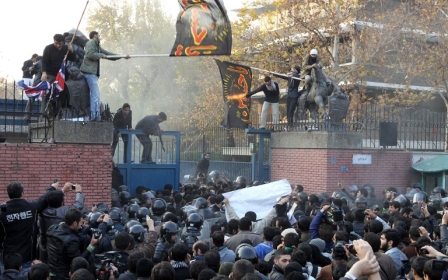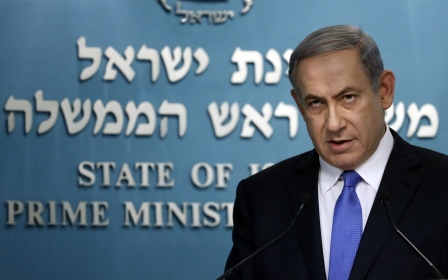Iran and UK: Another false start?

The UK foreign secretary Phillip Hammond’s visit to Iran has touched off a flurry of factional squabbling in Tehran, where relations with the UK inevitably generate noisy controversy.
To conservatives and hardliners normalisation of ties with the UK is clear proof that the administration of President Hassan Rouhani is trying to capitalise on the nuclear deal to forge deeper ties with the West.
To the Rouhani administration and its allies stabilising Iran’s troubled relations with key Western states is important if Iran is to keep up the momentum of the nuclear deal to bolster its influence in the region and beyond.
But it would be a mistake to see the latest outburst of controversy through a factional lens. Suspicions of the UK run deep in Iran and a dramatic improvement of ties is highly unlikely.
The key question is whether the UK and Iran can overcome the volatility of the past three decades to place their relations on a relatively stable footing.
The old fox
Iranian perceptions of the UK can be extreme, even bordering on the delusional. There are plenty of people from the older generations who still see a hidden British hand in every important global event. The loss of the British Empire has escaped the attention of this generation, who continue to view the UK as the world’s preeminent power.
Whilst the Iranian establishment does not share the general population’s inflated view of the UK, nonetheless official Iranian views on the UK can be unrealistic and often focus on the worst features of Britain’s role in the world.
Beyond general perceptions, the Islamic Republic resents the UK’s lingering presence in the Persian Gulf region and the wider Middle East, and spends considerable effort at countering regional British influence.
That is not to say there are not legitimate grounds for Iranian complaints. The UK establishment and mainstream media often paint Iran as darkly as possible, foremost by presenting the Islamic Republic as a source of instability in the region.
At the policy level, the UK’s clandestine intelligence role in sabotaging Iran’s nuclear programme, in addition to its leading diplomatic role in the imposition of European Union and United Nations sanctions, were specific sources of Iranian anger and outrage.
More broadly, from the Iranian point of view, the UK takes an improper interest in Iranian affairs, as evidenced by rhetorical UK support for the opposition in the aftermath of the disputed June 2009 presidential elections.
The Iranian establishment is fearful of the reach and influence of UK media, in particular the Persian language service of the BBC. Ironically this fear is rooted in the experience of the Iranian Revolution of 1978-79, when the BBC was perceived to have exerted a material impact on the outcome of the general uprising against the Shah.
The sum effect of these perceptions and experiences is a deep mistrust of UK intentions, embodied as the old fox in the collective Iranian imagination. Indeed, the context and details of contemporary Anglo-Iranian engagement provide little grounds for optimism for the future.
Focus on the future
Doubtless mindful of the inherent volatility of Anglo-Iranian ties, UK Foreign Secretary Hammond was careful to strike a cautious tone in Tehran. Indeed, to seasoned observers of Anglo-Iranian ties there is a clear sense of deja vu, as relations improved in the past only to come crashing down after a series of disputes or a dramatic incident, for example the Salman Rushdie affair of 1989 and most recently an assault by Iranian students on the British embassy in Tehran in November 2011.
Despite this difficult history, this time round there are tentative grounds for optimism. For a start, the Islamic Republic has displayed considerable diplomatic maturity and prowess by striking a deal with the international community over its controversial nuclear programme.
While the nuclear deal will not change the nature of the Islamic Republic nor alter the world view of its leaders and supporters, nonetheless it is a diplomatic and political breakthrough which will have profound repercussions on all aspects of Iranian foreign policy.
More broadly, the evolving regional landscape necessitates a greater degree of Iranian-Western cooperation. This was implicitly underlined in Hammond’s characterisation of Iran as an “important” country which cannot be ignored.
At odds over Syria
The complex proxy war in Syria is the key testing ground for potential Iranian-Western cooperation. Currently Iran and the UK are fundamentally at odds on Syria, as the latter (in tandem with the US and other major Western powers) is insistent on the departure of Bashar al-Assad as a precondition for the resolution of the war.
The UK emphasis on Iranian-Saudi dialogue can be helpful, not only in terms of de-escalating the conflict in Syria, but also on reaching a broad understanding on other actual or potential regional flashpoints, foremost Yemen and Bahrain.
In view of the UK’s longstanding colonial interference in Iranian affairs and the well-established British role in overthrowing Iran’s first democratically elected government in 1953, the emphasis is on Britain to address Iranian mistrust of British intentions.
If another crash in relations is to be avoided then reconciliation efforts must go well beyond diplomatic engagement. Greater British economic engagement with Iran, in addition to more British tourists visiting the country, can deepen ties to a point where a sudden rupture of ties becomes too costly for both sides to stomach.
Finally, the sizeable Iranian community in the UK (many of whom are dual nationals) can be capitalised on by both sides to deepen institutional connections, for example by forging greater academic and cultural ties. In order to stabilise Anglo-Iranian ties, a light step-by-step approach may yield surprisingly pleasant results in the long term.
- Mahan Abedin is an analyst of Iranian politics. He is the director of the research group Dysart Consulting.
The views expressed in this article belong to the author and do not necessarily reflect the editorial policy of Middle East Eye.
Photo: British Foreign Minister Philip Hammond shakes hands with Iran's President Hassan Rouhani at the presidential palace during his official visit in Tehran, Iran on 24 August 2015 (AA).
New MEE newsletter: Jerusalem Dispatch
Sign up to get the latest insights and analysis on Israel-Palestine, alongside Turkey Unpacked and other MEE newsletters
Middle East Eye delivers independent and unrivalled coverage and analysis of the Middle East, North Africa and beyond. To learn more about republishing this content and the associated fees, please fill out this form. More about MEE can be found here.





